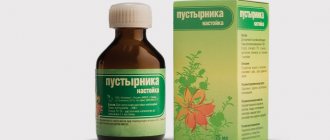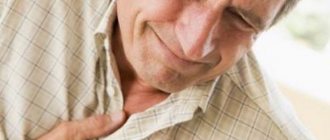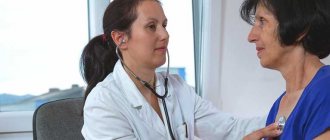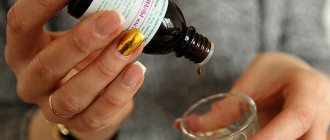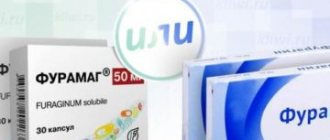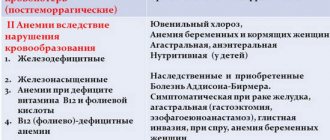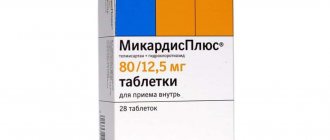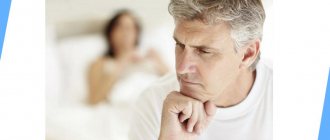The heart works hard throughout life, contracting and relaxing. Normal heart rate ranges from 50 to 150 beats per minute . During its contractions, blood circulation, oxygen and other nutrients are transported within the body. The continuous process of contractions is the heart rate.
A minimal interruption in the functioning of this organ indicates a malfunction in its functioning and in the whole organism. Therefore, it is extremely important to focus on health in a timely manner.
When deviations in the sequence, rhythm or heart rate of the myocardium are detected, we can talk about disruptions in the heart rhythm. Normally, the pulse rate reaches from 60 to 80 beats per minute .
When the heart rate reaches more than 90 beats, it is tachycardia or rapid heartbeat. The contractions themselves in such a situation will be normal, but the ECG recorded records a rapid rhythm.
Tachycardia often appears unexpectedly and disappears in the same way. Duration from a few seconds to several hours, sometimes days.
Often, difficulties with heartbeat appear in women. This also includes people who are characterized by sudden mood swings, overly active and demanding, prone to depression. It must be said that tachycardia is not considered an illness; it is only a symptom that indicates the occurrence of some illness.
Causes of rapid heartbeat
There are the following physiological factors that cause heart palpitations:
- Physical stress . During physical activity, muscles do a significant amount of work. Because of this, they consume nutrients and oxygen in considerable quantities. To ensure their functioning, the body begins to activate the sympathetic nervous system. In healthy people, during heavy physical activity it increases to 140 beats/min and higher.
- Strong feelings . The psychoemotional state affects the functioning of the heart. Moreover, a rapid heartbeat can be observed during positive and negative emotions.
- Stressful situations . Due to prolonged negative influence from the outside, the body begins to adapt to discomfort by increasing the production of certain hormones. This affects the sinus node, which leads to rapid heartbeat.
- Sexual arousal . At this time, a rapid heartbeat can develop under the influence of various mechanisms. There may be an emotional component and a hormonal surge.
- Painful sensations. During any pain, adrenaline is released in the body. It activates the body's protective properties. Adrenaline acts on the myocardium as a stimulant. Thus, minor pain increases heart rate for a short time, causing tachycardia.
- It's hot . When the ambient temperature is elevated, the body uses mechanisms to maintain a constant body temperature. Because of this, the tone of the sympathetic nervous system increases and heart rate increases.
- Climbing to heights . Increased heart rate is observed in athletes who rise to great heights. The atmospheric pressure is constantly decreasing, and therefore there is no supply of the required amount of oxygen. The body compensates for this with tachycardia.
- The use of alcoholic beverages , caffeine or energy drinks. Such substances can directly affect the sympathetic nervous system, causing an increase in heart rate.
- Tobacco smoking. Nicotine can stimulate the central nervous system, which leads to short-term increased heart rate. Usually it goes away after 10 minutes, it depends on personal characteristics.
- Medications . Many drugs cause heart palpitations as side effects. The occurrence, duration and intensity depend entirely on the drug that the patient took.
Women may experience increased heart rate during pregnancy. According to statistics, palpitations occur in the majority of pregnant women diagnosed with anemia.
Rapid heartbeat at night is accompanied by pulsation in the temples, neck, and fingers.
Sometimes people tend to notice that they experience heart palpitations after eating.
In another article we talk even more about the causes of low blood pressure and increased heart rate.
Problem? Let's cure!
Let's see how tachycardia is usually treated. More precisely, the disease that causes the heart rate to increase is treated.
So, let’s look at the causes and medications that doctors usually prescribe to eliminate them:
- Endocrine diseases. Most often, this is hyperthyroidism - when the thyroid gland secretes too many hormones. Along with a rapid heart rate usually comes irritability, frequent mood swings, and weight loss with a normal diet.
First, we take iodine. Thyroid disorders are almost always associated with iodine deficiency. Usually they prescribe drugs like Iodomarin, but it is highly advertised and because of this it costs an order of magnitude more than the same Iodine Balance.
Next come medications that normalize (lower) hormone levels, as well as improve the absorption of iodine. This is our Tyrozol, Eutiox, Propicil, Mimpara.
- Respiratory diseases. Asthma, pneumonia, COPD (chronic obstructive pulmonary disease). For asthmatics and for COPD, bronchodilators, bronchodilators (salbutamol, clenbuterol, hexoprenaline, berodual) are prescribed; for pneumonia, in addition to bronchodilators, antibiotics (cefazolin, ceftriaxone, suprax) or antibacterial (sumamed, clarithromycin), and for fever, antipyretics (ibuprofen, paracetamol).
- Heart diseases. These include inflammation, chronic rheumatic heart disease, and conduction disorders. What is prescribed here: antiarrhythmics - calcium channel blockers, for example, verapamine, diltiazem. Antibiotics, mainly with benzylpenicillin. Anti-inflammatory – diclofenac.
- Anemia. There are several types of them, and each type has its own treatment. These are mainly iron preparations (Ferrum-Lek, Tardiferon, Maltofer, Folgamma, Ferlatum)
- Intoxication. These are also infectious diseases for which antibiotics are prescribed. And various purulent inflammations, and poisoning with alcohol poisons, nicotine, exhaust gases, and industrial hazards. Here, too, detoxification is different for each case. General - saline solutions for vomiting (Regidron or intravenous sodium chlorine, disol), osmodiuretics (Mannitol, Arifon, Britomar)
- Adrenaline surge, stress. I wrote above about sedatives, in this case they are prescribed. Mainly of plant origin.
Signs, symptoms
Tachycardia is a symptom and in patients it can only cause external manifestations, thanks to which it can be recognized. Only people with severe related illnesses or serious pathological processes develop dangerous malfunctions.
Tachycardia manifests itself as follows:
- intense heartbeat ; Happens to all people with this disease. Caused by abnormal myocardial activity and uneven blood flow. Normally, heart contractions are not felt in a calm state.
- increased heart rate ; the result of an increase in ventricular heart rate. During supraventricular tachycardia, a similar sign is not observed. During the contraction of the heart muscle of the ventricles, there is a strong release of blood into the aorta.
- pulsation of the carotid artery ; This symptom appears near the angle of the lower jaw or on the side of the Adam's apple. Here you can feel the pulse of virtually all people. A rapid heartbeat often provokes an increase in blood pressure; it is possible to feel the pulse in another place. Rapid heartbeat with blood pressure can be common. With tachycardia, the pulse in patients can be felt: on the inside of the thigh;
- under the knee between the thigh and shin;
- behind the ankle on the side of the Achilles tendon;
- armpit.
More significant manifestations of heart palpitations occur during acute and chronic forms of heart disease. The same mechanism of occurrence with a difference in the form and strength of symptoms.
Medicines for arrhythmia
Arrhythmia and tachycardia cannot be treated independently. Medicines that help reduce rapid heart rate are used only as prescribed by a doctor.
An examination and correct diagnosis are required. It is necessary to identify contraindications to the use of drugs.
For each case, it is important to use your own tablets for tachycardia and palpitations. The task of antiarrhythmic drugs when affecting the patient’s body is to restore the rhythm.
It can be solved using:
- beta blockers;
- calcium channel inhibitors;
- potassium blockers;
- membrane stabilizing drugs.
Beta blockers
Among tablets for tachycardia and palpitations, beta-blockers occupy a special place, and all thanks to their active effect on the patient’s body. The drugs Egilok, Anaprilin, Ritmilen are taken in a course. In case of illness they help:
- reduce the strength and frequency of heart contractions;
- relax the walls of blood vessels;
- reduce blood pressure;
- reduce oxygen consumption by heart muscle cells;
- improve exercise tolerance;
- reduce the risk of developing arrhythmia.
Calcium channel inhibitors
Drugs used for increased heart rate that prevent calcium from entering the vascular cells, dilating them - calcium channel inhibitors. When using these tablets, blood flow improves, muscle tone decreases, and normal heart rate is restored.
The drugs are taken under the strict supervision of a cardiologist, because a sharp decrease in heart rate is possible, which can cause heart failure. Recommended drugs:
- Corinfar;
- Foridon;
- Verapamil.
Potassium blockers
If the heart rate is elevated, it means that the person's heart is not working at maximum efficiency. Over time, a heart that beats too quickly becomes weak.
This can lead to heart failure. Therefore, before writing a list of medications, the cardiologist will prescribe several cardiograms and then recommend monitoring your heart rhythm yourself.
There are several main types of drugs designed to control heart rate.
Beta blockers
These medications help reduce your heart rate. The mechanism of action of the active substances is to block the stimulating effect of adrenaline. Beta blockers are the most effective and popular medicine for tachycardia. As a welcome side effect, taking the pills will help reduce high blood pressure, anxiety and migraines.
List of beta blockers:
- acebutolol;
- atenolol;
- betaxolol;
- labetolol;
- bisoprolol;
- carvedilol;
- metoprolol tartrate;
- metoprolol succinate;
- nebivolol;
- penbutolol;
- propranolol;
- sotalol hydrochloride;
- timolol;
- nadolol;
- pindolol.
Calcium channel blockers
Calcium channel blockers also slow the heart rate and are prescribed for tachycardia. These tablets help relax smooth muscle and artery walls and prevent the heart from absorbing calcium.
Excess calcium can significantly increase the heart rate. Calcium channel blockers protect the heart muscle from weakening and also dilate the arteries.
In most cases, the cardiologist prescribes one of two centrally acting calcium channel blockers. These tablets are usually taken in a continuous course:
- verapamil hydrochloride (trade name verapamil);
- diltiazem hydrochloride.
Digitalis glycosides
The main drug based on digitalis is digoxin. This drug helps slow the heart rate.
Doctors often prescribe digoxin as the primary drug to treat heart failure. Digoxin also helps slow the rate of transmission of electrical impulses from the atria to the ventricles.
In order to notice what positive effects the drug has, you need to drink it for at least a month. In order for the patient to completely get rid of tachycardia, the cardiologist develops a special table that outlines the dosage of drugs by week.
The heart rhythm is controlled by special electrical currents that follow a given path. With arrhythmia, electric currents stray from the established route.
Instead, electrical signals travel chaotically through the atria. This is what makes the heart beat chaotically.
Drugs that are prescribed to treat problems with heart rhythm belong to the group of antiarrhythmics.
There are two main types.
Sodium channel blockers
Drugs of this subtype directly control heart rhythm. Mechanism of drug influence: active substances regulate the rhythm of contractions and the speed at which the heart muscle conducts electrical impulses. The active ingredients are focused on regulating electrical activity in the sodium channels of heart cells.
Trade names of such medicines:
- disopyramide (rhythmodan);
- mexiletine (mexarhythm);
- quinidine;
- procainamide (novocainomide);
- propafenone;
- flecainide.
Potassium channel blockers
Like sodium channel blockers, potassium channel blockers also help control heart rate. These are drugs that reduce the electrical conductivity of the heart by interfering with potassium channels.
List of such medicines:
- amiodarone (cordarone);
- dronedarone (multac);
- sotalol sandoz.
In order to have at least the slightest idea about the differences between the tablets for heart pain, the names of which are presented above, let us familiarize ourselves with the therapeutic effect of each group of the drugs under consideration.
- Nitrates. The pharmacological group of nitrates and nitrate-like substances is used to prevent exacerbation of angina pectoris, as part of complex therapy for heart failure, as well as during the recovery period after myocardial infarction (MI). Contraindicated in severe arterial hypotension (SBP less than 100, DBP less than 60 mm Hg), acute myocardial infarction against the background of severe hypotension, constrictive pericarditis, cardiac tamponade, cerebral hemorrhages, severe anemia, collapse, shock.
- Vasodilating agents. An extensive group of drugs prescribed for any form of heart failure against the background of arterial hypertension in order to inhibit the progression of heart failure. Contraindicated in case of angioedema or a tendency to it, under the age of 18 years, during pregnancy and lactation, as well as while taking certain medications.
- Coronarodilating agents. Prescribed for neuroses, mental attacks, VSD, functional cardialgia. Contraindicated in acute myocardial infarction, under the age of 18 years, in severe hypotension, and acute cerebrovascular accidents.
- Beta blockers. Medicines in this group are intended for the treatment of hypertension and the prevention of exacerbations of angina pectoris. Contraindicated in severe CHF, cardiogenic shock, cardiomegaly, arterial hypotension, bradycardia, Prinzmetal's angina, 2nd and 3rd degree atrioventricular block.
- Blockers of "slow" calcium channels. Most of the medications in this pharmaceutical group are used in the treatment of arrhythmia and post-infarction conditions, Prinzmetal's angina, tension, unstable and chronic stable angina. Contraindicated in AV blockades, bradycardia, cardiogenic shock, CHF, sinus node weakness.
Any heart pills, the list of which is indicated in the table, cannot be used if you are hypersensitive to the components of the drug, pregnant, lactating women, adolescents, or taking medications that are incompatible with them.
For mild extrasystole, treatment with additional administration of electrolytes such as potassium and magnesium can be effective. Both substances are interconnected and support the mechanism of muscle contraction.
They are contained in sufficient quantities in the preparations Panangin and Asparkam. Can be used for preventive purposes.
The only difference between them is that Panangin tablets are coated, which Asparkam does not have, so part of the dose will be destroyed in the gastrointestinal tract.
In tachyarrhythmic forms, to reduce the heart rate, the following are prescribed: drugs from the group of β-blockers:
- Anaprilin,
- Obzidan,
- Propranolol,
- Ritmilen.
They are most useful when arrhythmia is combined with cardiac ischemia and hypertension, but the effect increases bronchospasm in asthmatics.
Tools such as:
- Vasocardin,
- Betalok,
- Atenolol,
- Nebivolol,
- Acebutalol,
- Metoprolol
can also be taken by persons with obstructive diseases of the respiratory tract.
According to individual indications, cardiac glycosides - Digitoxin - are used.
All tablets for heart pain have their own pharmacological effect. Their correct identification is the key to successful treatment. To protect yourself from unwanted results, here is a list of some heart medications.
- Tablets for cardiac arrhythmia: use antiarrhythmic drugs:
- sodium channel blockers: lidocaine, procainamide;
- beta blockers: atenolol, nadolol, metoprolol or propranolol;
- drugs for the refractory period: amiodarone, bretilin, sotalol, ibutilide, tosylate
- calcium channel blockers: diltiazem, verapamil.
- Myocardial infarction: aspirin, beta blockers, heparin, antiarrhythmic drugs, nitrates, magnesium, calcium antagonists.
- Coronary artery disease - its most common manifestation is angina pectoris. Good pills for angina pectoris, as well as for heart pain:
- Heart failure:
- beta-blockers: bisoprolol;
- diuretics: spironolactone;
- sympathomimetic drugs: dopamine;
- nitrates: nitroglycerin
Prices for heart medications in pharmacies:
- Calcium channel blockers:
- diltiazem – 144 rub.
- verapamil – 69 rub.
- Sodium channel blockers:
- lidocaine – 377 rubles;
- novocainamide – 117 rub.
- Nitrates:
- Diuretics:
- spironolactone – 44 rub.
- furosemide – 70 rub.
The medications are taken strictly as prescribed by the doctor.
Other calcium channel blockers have peripheral effects. They will also help relax the blood vessels, but will not directly affect the rate at which the heart contracts.
It is worth noting that dronedarone (multac) is an innovative drug that is used only to prevent arrhythmia in people who have already had a similar diagnosis in the past.
It is not recommended to use this drug for prophylaxis. But sotalol Sandoz tablets, which reduce heart rate, combine the functions of a beta blocker and a potassium channel blocker.
Types and types of tachycardia
During diagnosis, it is necessary to establish what type of tachycardia is present in the patient, chronic or paroxysmal .
In the first case, the symptoms are constant or after regular intervals. In the second case, it appears 1 or several times in various forms.
According to localization, there are 2 main types:
- Atrial . The rhythm of contraction of the atria becomes frequent, although the ventricles themselves work normally. Often there is an additional focus of automatism in the walls of the atrium. It is detected mainly using electrocardiography, which shows periods of contraction of some cardiac chambers.
- Ventricular. It develops in the same way as the atrial one. The heart rate in the ventricles increases, accompanied by tachycardia in the atria. Here we can talk about pronounced clinical manifestations of the disease, since the blood circulation is affected. In some cases, the reason is due to an excessive number of extrasystoles.
Based on the regularity of the heart rhythm, the following types of palpitations are distinguished:
- Sinus . The impulse is formed in the sinoatrial node after an equal period of time. Apart from an increase in heart rate, no other symptoms are observed, since the cardiac cycle proceeds in a normal sequence, the blood pumps and hypoxia is not observed.
- Arrhythmic. The correct rhythm is disrupted. Heart rates are frequent and chaotic. An imbalance between ventricular and atrial systole can often be observed. The prognosis is poor, since the heart does not perform a pumping function and pumps blood poorly.
tablets for tachycardia and palpitations are the safest
Tablets for tachycardia are prescribed if necessary to stop an attack or to treat a disease. Drugs are divided into 2 groups: natural and synthetic. They have almost the same effect, but the former have fewer contraindications and side effects. Medicines of synthetic origin are more relevant when providing emergency care.
Tablets for tachycardia are natural and synthetic
Basic principles of treatment with tablets
Medicines for tachycardia are prescribed depending on the reasons that caused it. Pregnant women should take medications to lower their heart rate with extreme caution. Medicines always have contraindications and can harm the fetus and the health of the expectant mother.
Medications that reduce heart rate have the following positive effects on the body:
- calm and relax;
- strengthen the heart muscle;
- reduce the risk of a recurrent attack;
It is unacceptable to take pills uncontrollably, even natural ones, although they are considered the safest.
You cannot be treated constantly with the same medications to lower your heart rate. The body begins to get used to the active substance, and the drug becomes less effective.
List of the best tablets for tachycardia
For sinus tachycardia, the doctor prescribes natural remedies that will help the patient relax. Paroxysmal tachycardia requires immediate hospitalization and treatment in a hospital. In this case, medications of synthetic origin, which also include beta blockers, will be prescribed to normalize the heart rate.
Medicines from this group have few contraindications, calm the nervous system and effectively reduce the heart rate.
List of the most effective means.
Persen is used to relieve palpitations in adults and children over 12 years of age. It should be taken twice a day, 2-3 tablets. The last appointment is 30 minutes before. before sleep. The maximum dose is 12 pills per day.
Persen - a sedative of natural origin
Contraindicated:
- children under 12 years old;
- pregnant and nursing mothers;
- in the presence of urinary tract diseases, sucrose deficiency and fructose intolerance, arterial hypotension.
The price of the medicine is from 230 rubles.
Take Valerian 1-2 tablets three times a day, washed down with clean water. Can be drunk during pregnancy and lactation.
Valerian can be taken during pregnancy
Contraindicated:
- with a tendency to depression;
- children under 12 years old.
For high heart rate, take 1 tablet twice a day with plenty of boiled water. The second way to use Corvalol is to place the tablet under the tongue.
Corvalol will help reduce heart palpitations
Corvalol is not prescribed:
- people with kidney or liver failure;
- with hypersensitivity to the components of the drug.
Can be taken with normal blood pressure and rapid heartbeat. The dosage is 30 drops three times a day.
Motherwort tincture normalizes heart rate
It is forbidden to drink Motherwort tincture:
- patients with alcohol dependence;
- in case of individual intolerance to the active substance.
List of the best medications for palpitations
Prescribed to patients with low blood pressure. Take the medicine 0.5-1 mg twice a day. For sleep disorders, Phenazepam is taken at night at a dosage of 2.5 mg.
Phenazepam not only normalizes heartbeat, but also improves sleep
You cannot take the drug:
- for chronic obstructive pulmonary disease;
- in acute heart failure;
- angle-closure glaucoma;
- myasthenia gravis.
- contraindicated in the 1st trimester of pregnancy.
For tachycardia and high blood pressure, Diroton should be taken once a day in the morning. The usual dose is 20 mg. The maximum dosage is 40 mg.
Diroton should be taken once a day
It is strictly forbidden to accept:
- children under 16 years of age;
- pregnant women;
- during lactation.
- Contraindicated in the presence of a history of angioedema.
Refers to pulse-sparing drugs. Take it 5 mg twice a day. After 3 weeks, the dosage is increased and brought to 7.5 mg per day.
The medicine should not be taken in case of SSSU, third degree AV block, myocardial infarction, cryogenic shock, or sinoatrial block.
Coraxan is a pulse reducer
Contraindicated:
- with a resting heart rate less than 60 beats per minute;
- children under 18 years of age;
- pregnant women;
- during breastfeeding.
Price – from 1170 rub.
If a person has contraindications to taking these drugs, then calcium antagonists are used: Filapomin, Anipamil.
To treat tachycardia, the drug should be taken as follows:
- the first days, 20 mg of the substance three times a day;
- gradually increase the dose to 80-120 mg per 24 hours.
Anaprilin will help cope with tachycardia
Quickly helps with an attack of tachycardia. To stabilize the pulse, Egilok is taken in the morning and evening, 50 mg.
Egilok is used for an attack of tachycardia
Refused admission:
- pregnant and lactating women;
- children under 18 years of age;
- in the presence of cardiogenic shock, AV blockade of the second and third degrees, CVS, Prinzmetal's angina, heart failure in the stage of decompensation.
These drugs relax the vascular muscles, reduce myocardial contractility, and have an antispasmodic effect. This reduces the load on the heart, lowers blood pressure and slows the pulse.
The tablets will help eliminate the symptoms of the disease if you take them three times a day, 20-30 mg. You should not drink more than 150 mg of the drug per day.
Contraindicated:
- for heart failure, acute myocardial infarction, unstable angina;
- children under 14 years of age;
- nursing mothers;
- pregnant women.
The dosage of the drug is selected individually for each patient. The average dose is 20 mg twice daily every 12 hours. The maximum dose is 40 mg twice every 24 hours.
The dosage of Corinfar is prescribed individually
Corinfar is not prescribed:
- nursing mothers;
- women bearing a child;
- for heart failure in the stage of decompensation, acute myocardial infarction, unstable angina, stenosis.
Membrane stabilizing drugs
They improve the flow of potassium, calcium and sodium ions to the heart, resulting in a slower heart rate.
The daily dose of the drug is gradually increased. Start drinking 125-250 mg three times a day, and gradually increase the dosage until a therapeutic effect is obtained.
It is forbidden to take Metostabil:
- with acute renal and liver failure and lactose intolerance;
- during pregnancy;
- during lactation.
For increased heart rate and rapid pulse, drink Etatsizin 50 mg 3 times every 24 hours. If there is no effect from the tablets, then the dose of the drug is increased. The maximum dosage is 300 mg per day divided into 3 doses.
Ethacizine helps lower heart rate
You should not take the medicine:
- with left ventricular myocardial hypertrophy;
- with post-infarction cardiosclerosis, arterial hypotension;
- with cardiogenic shock;
- people under 18 years of age;
- pregnant and lactating women.
Price – from 1220 rub.
The medicine is taken 0.25-1 g every 3-6 hours. If this dosage does not help relieve symptoms, then it is increased to 3-4 mg per day.
Packaging of Novocainamide tablets
Contraindicated:
- with myocardial infarction, heart failure, atrioventricular blockade;
- with renal failure.
Medicines from this group act slowly on the body and have a lot of contraindications, so they are rarely prescribed against tachycardia.
The daily dose of the drug is 160 mg. It is divided into two doses. If a therapeutic effect is not observed, the dosage is increased to 320 mg per day.
The drug Sotapol is suitable for normalizing heart rhythm.
It is prohibited to take:
- patients with allergic rhinitis;
- nursing mothers and pregnant women;
- in the presence of heart failure or arterial hypotension;
- during cardiogenic shock.
First, take 1 tablet 2-3 times a day. After 1-2 weeks, they begin to drink 1 pill per day. Every 5 days of admission, take a break for 2 days.
Packaging of Cordarone tablets
Contraindicated:
- with sinus bradycardia or AV block;
- diseases of the thyroid gland,
- while carrying a child;
- during lactation.
Choosing the best drugs is important, but you also need to remember about your lifestyle. You should eat right, lead an active lifestyle, do not smoke or abuse alcohol.
Source: https://folkmap.ru/krov/tabletki-ot-tahikardii-i-serdtsebieniya-samye-bezopasnye/
How to reduce heart palpitations?
How to lower your heart rate? To stop an attack of rapid heartbeat, you do not need to take any drug for tachycardia.
It is possible to normalize your heart rate using the following manipulations:
- Tighten the muscles of your arms, legs and abdomen and hold this tension for 20 seconds. Make a gap for a minute and repeat everything again;
- Take a deep breath and hold your breath for 15 seconds;
- Sharply shift your gaze to the bridge of your nose;
- Try to clear your throat;
- Induce a gag reflex;
- Perform a cervical massage near the branch of the carotid artery.
Treatment
Physiological palpitations do not require therapy, since normal sinus rhythm can be easily restored by one’s own efforts within a short period of time.
Experts do not recommend treating palpitations that have developed as a pathological process of other organs and systems with medications. In such situations, an increase in heart rate will be an adaptation of the body.
If the rapid heartbeat is removed with the help of medications, the patient’s general condition worsens greatly (due to a sharp drop in blood pressure).
Medicines
Drug therapy for palpitations is carried out when a specialist believes that an increase in heart rate is the cause of dangerous consequences.
In such a situation, antiarrhythmic drugs are used to slow down cardiac function and reduce the risks associated with tachycardia:
- Beta blockers. Such drugs block cardiac receptors responsible for sensitivity to adrenaline and norepinephrine. Thus, the activity of the sympathoadrenal system does not affect heart rate and tachycardia disappears. Many of these drugs are used in tablet form for a long time to eliminate palpitations.
- Calcium channel blockers. Calcium channels in cardiac muscle cells are involved in myocardial contractions. Blocking them leads to a decrease in heart rate and elimination of palpitations. Medicines are prescribed when the patient has contraindications to the use of beta blockers.
- Sometimes drugs from other subgroups are prescribed to eliminate heart disease that causes tachycardia (nitroglycerin). These drugs do not affect heart rate. They remove it indirectly, removing the main ailment. Sometimes diuretics or other medications are prescribed to maintain oxygen supply.
Folk remedies
It is necessary to treat tachycardia using traditional medicine with caution, since there is a high probability of various consequences of the disease and a deterioration in the general condition of the patient.
You cannot treat yourself with folk remedies until diagnosis and identification of the cause that provoked the rapid heartbeat.
In addition, it is not recommended to use various infusions and decoctions along with antiarrhythmic drug therapy. Therefore, it is recommended to consult with a specialist before starting treatment for rapid heartbeat with folk remedies.
To treat tachycardia, the following drugs are used:
- Adonis decoction. 1 tsp. dried herb is poured into 0.2 liters of hot water and boiled over low heat for up to 5 minutes. Then the broth must be left for 2 hours. The decoction is taken 3 times a day for a week, 1 tbsp. l.
- Eleutherococcus. The extract of this plant in liquid form can be purchased at the pharmacy. Take 30 drops 3 times a day.
- A mixture of fragrant rue and yarrow juice. Similar components are mixed in equal quantities and added to hot water, 25 drops per 50 ml. The infusion is consumed 2 times a day for a month.
- Calendula inflorescences. An infusion is prepared from its flowers. 5 tsp. dried herbs pour 1 liter of boiling water. Leave for at least an hour. The medicine is taken half a glass three times a day.
What should I take?
What pills should I take for cardiac tachycardia?
Medicines prescribed for this pathology are divided into the following groups:
- sedatives;
- antiarrhythmic;
- cardiac glycosides;
- thyreostatic;
- ACE inhibitors;
- beta blockers.
Taking sedatives
Sedatives for tachycardia help if the pathology is caused not by heart disease, but by stress. They can be drunk at normal blood pressure and heart rate from 100 to 150/60 sec.
Table 2. Sedative drugs.
| A drug | Description | Price |
Valerian tincture | A herbal preparation that has a moderate sedative effect. Treats mild functional disorders of the cardiovascular system. | 20-40 rubles. |
Motherwort tincture | It has a psycholeptic, sedative, cardiotonic, hypotensive effect. | 46 rubles. |
Ritmilen, in the photo its analogue, Disopyramide | The medicine promotes the narrowing of coronary vessels and activates the flow of oxygen into the myocardium. Blood pressure does not change. | Up to 120 rubles. |
Verapamil | Class 1 selective calcium channel blocker. | 30-50 rubles. |
Relium | It has an anxiolytic, sedative, anticonvulsant, and central muscle relaxant effect. | 385 rubles. |
Ethacizin | The medicine has an antiarrhythmic effect. | 1290 rubles. |
The best medicine in this group is Persen. The cost of the medicine depends on the form of release.
The price of Persen varies from 247 to 552 rubles
With high blood pressure
The most effective medicines are presented in the table.
Table 3. Medicines for tachycardia with high blood pressure.
| A drug | Description | Price |
Quinidine | Class IA antiarrhythmic drug. Helps reduce myocardial excitability. | From 224 rubles. |
Reserpine | It has antipsychotic, hypotensive and sedative effects. | From 326 rubles. |
Enap | Intended to normalize cardiac activity and blood pressure. | Up to 258 rubles. |
With low blood pressure
The main goal of therapy is to reduce the release of adrenaline into the blood and reduce the body's reactions to stress.
Table 4. Medicines for tachycardia with low blood pressure.
| Medicine | Description | Price |
Grandaxin | Psychovegetative regulator with moderate stimulating activity. Has a sedative effect. | 349 rubles |
Mezapam | The medicine relieves emotional stress and removes nervous excitement. Can be prescribed against the background of VSD. | 950 rubles |
Pulsnorma | Combined antiarrhythmic drug. | 744 rubles. |
With normal blood pressure
The table lists the most effective medications recommended for use with normal blood pressure.
Table 5. Drugs for normal blood pressure and tachycardia.
| Medicine | Description | Price |
Finoptin | Calcium channel blocker. | From 56 rubles. |
Raunatin | Prescribed for mild to moderate arterial hypertension. | 84-125 rubles. |
Amiodarone | It has antiarrhythmic, coronary vasodilating and antianginal effects. | 56-111 rubles. |
Propaphenone | The effect of the drug is based on a local anesthetic and direct membrane-stabilizing effect on myocardiocytes. | 248 rubles. |
In order to avoid the occurrence of side effects, before using these medications you should carefully study the instructions for use.
How to lower your heart rate
To lower heart rate, you need to take class 1 antiarrhythmics.
Table 6. Medicines that reduce heart rate during tachycardia.
| Medicine | Description | Price |
Novocainamide | Reduces the excitability and conductivity of the heart muscle, has a vasodilating effect, and helps lower blood pressure. | 160-200 rubles. |
Bisoprolol-Teva | The medicine reduces the myocardium's need for oxygen. | 201 rubles. |
Digoxin | The drug has a positive inotropic effect. | 40 rubles. |
Note! Initially, the patient is prescribed a minimum dosage of the drug. It depends on the body weight and age of the person.
Use of beta blockers
Medicines in this group are intended to support the heart. They significantly reduce the rhythm of its contractions. The list of beta blocker drugs for tachycardia is presented in the table.
Table 7. Drugs for tachycardia from the group of beta blockers.
| A drug | Description | Price |
In the photo Bisoprolol | Reduces plasma renin activity, reduces myocardial oxygen demand. | 53 rubles |
Propranolol | Has antiarrhythmic, antianginal, hypotensive effect. | 166 rubles. |
Carvedilol | It has an antianginal, vasodilating effect. | From 63 rubles. |
One of the best drugs in this group is Nebivolol. The cost of the medicine depends on the manufacturer and form of release.
The price of Nebivolol ranges from 219-392 rubles
Help with heart palpitations
The best drugs for palpitations and tachycardia are presented in the table.
Table 8. How to help with palpitations?
| A drug | What does it help with? |
Sotalol | Prescribed for temporary pulse irregularities. |
Dofetilide | Intended to eliminate atrial flutter. |
Note! These medications should not be taken during pregnancy.
What should expectant mothers drink? The safest drug is Panangin. Please see the chart for more details about this medication and its cost.
The cost of Panangin varies from 149 to 343 rubles
Use of thyreostatics
Medicines in this group are prescribed if the acceleration of heart rate was provoked by an excess of hormones secreted by the thyroid gland.
Table 9. The best drugs that reduce tachycardia from the group of thyreostatics.
| A drug | Description | Price |
Mercazolil | Antithyroid drug. | 20-50 rubles. |
Potassium perchlorate | The medicine inhibits the active uptake and accumulation of iodine by the thyroid gland. | From 35 rubles. |
Microiod or its analogue, Tyrosol | A combined drug that has an active effect on metabolism. | From 20 rubles. |
Taking vitamins
The list of medications for cardiac tachycardia should be supplemented with vitamins. They normalize the functioning of the heart and have a beneficial effect on a person’s overall well-being.
Table 10. The best medications for cardiac tachycardia from the group of vitamins.
| A drug | What does it help with? |
Asparkam | Has an antiarrhythmic effect. For tachycardia, it can be prescribed in tablet form. |
Vitrum Cardio | Helps activate lipid metabolism. |
Cardio Forte | Treats heart diseases. |
Dangerous accompanying symptoms
During palpitations, the following accompanying symptoms are observed, which are not its manifestation or consequence:
- body temperature rises;
- headache and muscle pain;
- sweating and trembling in the muscles;
- the skin turns pale;
- breathing is impaired;
- high fatigue;
- sharp pain;
- gag reflex and diarrhea.
Such symptoms are typical for diseases that cause tachycardia. It is not considered its direct manifestation or consequence, but is often observed as a manifestation of general symptoms of the main disease.
Complications, consequences
In many patients, palpitations do not provoke any unpleasant consequences. It is considered a symptom of other ailments or a response to irritants. The danger is a rapid heart rate, which is caused by heart problems. Thus, such consequences can only be observed in people with complex concomitant diseases.
The main unpleasant consequences of tachycardia are:
- thromboembolism;
- myocardial infarction;
- fainting conditions;
- cardiogenic shock;
- swelling in the lungs;
- sudden cardiac death;
- weight loss and general muscle flaccidity.
Prevention, useful tips
Many patients with paroxysmal tachycardia continue to live with this difficulty for a long period of time. Treatment for this disease is dangerous and has unforeseen consequences. It is recommended to follow preventive measures to reduce the frequency of tachycardia attacks.
Prevention measures include:
- Follow the menu . There is no special diet for tachycardia, but certain nutritional requirements will help improve the quality of life of patients. It is necessary to limit the use of alcohol, strong tea and coffee, as they provoke an attack. Limit animal fats , as they provoke the development of atherosclerosis and increase the likelihood of a heart attack during tachycardia. Limiting the caloric content of food and consulting with a nutritionist is advised only to those patients who are overweight.
- Stop smoking. Nicotine provokes tachycardia. When a patient suffers from heart pathologies that are accompanied by tachycardia, the likelihood of consequences is especially high. In addition, smoking increases the likelihood of myocardial infarction during an attack.
- Limit physical activity. Lead to an increase in heart rate. In people with constant disruptions of the cardiac conduction system, the arrhythmia drags on for several days, which increases the risk of thrombosis. The likelihood of engaging in physical therapy for preventive purposes should be clarified by a specialist.
Blood thinners for heart problems
Separately, it is worth considering blood thinners, which are prescribed to prevent the formation of dangerous blood clots. These medications include antiplatelet agents and anticoagulants, which have the side effect of increasing the risk of bleeding. If a doctor prescribes one of these drugs to a patient, this means that great care must be taken with any injury, surgery, or even dental procedures.
Antiplatelet agents
These drugs work by directly affecting the function of platelets in the blood. Platelets are special cells that help stop bleeding by sticking together and forming a clot.
List of drugs with antiplatelet action:
- clopidogrel (Plavix);
- prasugrel;
- tirofiban (aggrastat);
- dipyridamole.
Tachycardia in children
In children, tachycardia is especially dangerous because it has the potential to transform into a serious heart disease.
It should not be forgotten that fluctuations in heart rate in childhood are quite natural, since the needs of the body quickly change and the heart tries to adapt.
Heart rate is affected by:
- Age;
- Activity level;
- Measurement time;
- Temperature;
- Season;
- Environment.
The younger the child, the higher his normal heart rate:
- Thus, from birth to 2 days of age, the normal indicators will be with a pulse rate of 120-160 beats per minute.
- At the age of 1 year the numbers will be 110-170, after 5 years they will reach 60-130.
Healthy children are active and emotional, so an increase in heart rate will be normal. When the characteristics are greater than the normative ones, we can talk about a rapid heartbeat. The reasons for it in childhood are the same as in adults.
Beta blockers
A common example is a group of drugs called beta blockers, prescribed to patients with heart disease and high blood pressure.
These drugs reduce heart rate both during rest and exercise, although not always by the same amount. In some situations, a person can train much harder without increasing their heart rate, even in the aerobic zone. In this case, for example, 125 beats per minute with medication might be 155 without it, so if your maximum aerobic heart rate is 140, you could easily overtrain and hurt yourself at 125.
https://www.youtube.com/watch?v=jxXFI39ovJA
Some people cannot achieve their maximum aerobic heart rate otherwise than on beta blockers. The ranking of the most popular includes:
- "Metoprolol". A cardioselective lipophilic blocker that does not have any sympathomimetic or membrane-stabilizing effect. Metoprolol interferes with the stimulating effect of the sympathetic nervous system on the heart and causes a rapid reduction in heart rate, a decrease in cardiac output and blood pressure. Reduces the latter in patients in the supine position. In representatives of the stronger sex with typical or moderate hypertension, Metoprolol reduces the mortality rate from cardiovascular pathologies.
- "Bisoprolol". Prescribed by doctors for arterial hypertension (sustained rise in blood pressure), prevents angina attacks.
- "Nebivolol". Prescribed for the treatment of patients with essential form of arterial hypertension. Nebivolol is included in the complex therapy of elderly patients suffering from stable chronic heart failure of moderate severity.
Antiarrhythmic drugs, calcium channel blockers, and other medications can sometimes slow your heart rate. If you are taking any prescription or over-the-counter drug, you should know whether it affects your heart rate.


